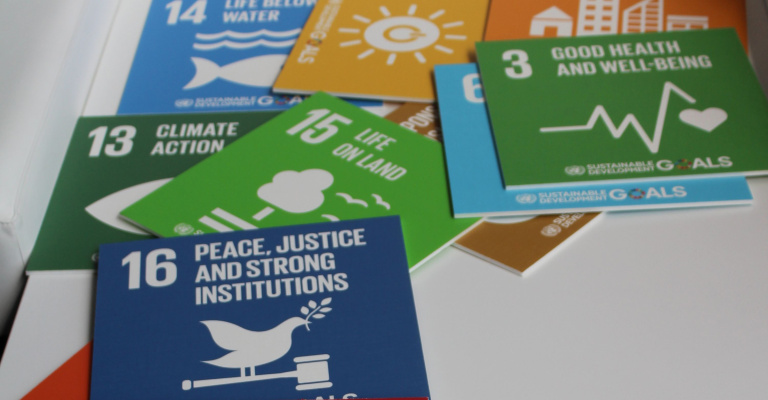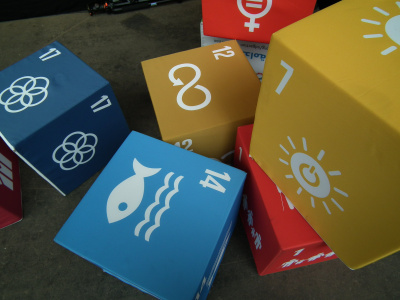
Team von der Leyen: Time to speed up the delivery of the 2030 Agenda
On 24 and 25 September, heads of state and government will discuss progress on implementation of the 2030 Agenda for Sustainable Development at a summit in New York – for the first time since the agenda was adopted in 2015. With more than ten years to go, is there any reason for optimism? In which areas did the world make real progress? Where should we speed up implementation? And what could the new EU leadership do better in the next five years?
Let us start on a positive note. In the past 20 years, long before the agenda’s Sustainable Development Goals (SDGs) were adopted, the world has made tremendous progress in terms of human development.
According to Hans Rosling’s widely-quoted book ‘Factfulness: Ten Reasons We’re Wrong About the World—and Why Things Are Better Than You Think’, we seem to be suffering from an overdramatic world view: “The world, for all its imperfections, is in a much better state than we might think”. Examples of major progress abound: extreme poverty has been significantly reduced, the under-five mortality fell almost 50% between 2000 and 2017, massive immunisation campaigns saved millions of lives and literacy rates, levels of education and global access to electricity have spectacularly improved.
So far, so good. The 2019 Sustainable Development Report, however, provides a less rosy picture. There is recognition of progress on several SDGs in many countries, but no country is on track to meet the goals. Even more worrying is that the world seems to be losing ground in many areas: “[..] we seem to be eroding the very foundations of our economies, livelihoods, quality of life”.
This is particularly the case for climate action (SDG 13). The past five years have been the warmest on record. Natural disasters are becoming more frequent and violent – as we have recently witnessed with the devastating hurricane over the Bahamas. Elsewhere, land degradation is becoming a huge problem, and many parts of the world are becoming uninhabitable.
While hunger and extreme poverty declined in several parts of the world, inequalities are becoming a major issue globally. This is one of the main causes of increasing violent conflicts in some of the most fragile regions in the world (for instance the Sahel and Central Africa). In the past years also rule of law, human rights and freedom of expression (SDG 16 on peace, justice, strong institutions) has worsened in more than 50 countries.
While EU countries are consolidating a global lead role in areas such as health, education and gender, progress has been very slow on climate action (SDG 13), responsible consumption and production (SDG 12), life below water (SDG 14) and life on land (SDG 15).
Why is implementation of the 2030 Agenda running behind schedule?
The 2030 agenda and its Sustainable Development Goals are hardly known. On average, one third of the European population has heard about SDGs but only one in ten Europeans know what SDGs are. Those who are aware of it mainly perceive it as a development agenda that only concerns the poorest countries in the world. Beyond the development sector, there is a daunting lack of awareness of the universal responsibility to which all states and governments on this planet have subscribed.
The absence of a whole-of-society but also whole-of-government ownership of this agenda affects implementation. Few countries have adequate monitoring and review systems in place. According to the 2019 Sustainable Development Report, only 18 out of the 43 countries (including all G20 countries) selected for the Report, make reference to the SDGs in their national budgets. Implementation of the SDG agenda is suffering from an ‘all-things-to-all people’ perception: governments love to focus on the SDGs that are within easy reach, without tackling the real hot potatoes.
This inertia is further compounded by the erosion of global multilateral frameworks by a growing group of world leaders who are withdrawing their support to multilateral organisations (such as the United Nations) and global deals (for instance, the Paris climate agreement). These days, the slogan ‘taking back control’ seems to appeal more than ‘global problems require global solutions’.
Models of liberal democracy seem to be losing ground, as China and other authoritarian states seem to prove that major progress on several of the SDGs can be achieved without democracy. The EU would love to lead by example on SDG 16, but its credibility is undermined because of growing populism within its own borders.
How can the EU speed up SDG implementation?
In this rather gloomy context, we propose five actions for the EU to make progress on SDG implementation:
1. Integrate the 2030 Agenda in all dimensions of foreign and domestic policies
This implies – amongst other things – that all policies, strategic plans and budgets of EU member states should be aligned with the 17 SDGs. Effective data collection, monitoring mechanisms at the highest political levels and peer pressure are key requirements to steer progress.
In this context it is encouraging to see that Ursula von der Leyen is setting an example by stating in all mission letters to the members of her team that “[..] each Commissioner will ensure the delivery of the United Nations Sustainable Development Goals within their policy area. The College as a whole will be responsible for the overall implementation of the Goals”.
2. Tackle negative spill-over effects of EU internal policies on third countries
With the Maastricht Treaty of 1992 and the Lisbon Treaty of 2009, the EU integrated policy coherence for development (PCD) into EU law. This implies that all EU policies should take account of the likely impacts on developing countries. PCD plays a central role in the implementation of the global goals. The EU can build on an impressive number of tools and mechanisms, pilot projects and lessons learnt. Yet progress has been limited. It has proven to be very difficult to remedy the external impact of internal European policies and practices such as ecological footprints. More efforts could be made to work on “case by case” scenarios and to connect the SDGs to the everyday concerns of citizens in both Europe and other parts of the world. Locally-driven bottom-up approaches help to better “own” SDGs. That is where the crucial role of cities and local authorities come in. They are at the frontline of realising the SDGs yet remain still too marginalised, also in EU external action.
3. Make the private sector more accountable
In several EU member states, awareness is growing in the corporate sector that it is in their interest to step up efforts on the SDGs. But bold measures are needed beyond “greenwashing”, to break with old habits and practices such as finding alternatives to ‘salary cars’, reducing short distance flights within Europe, constructing energy saving enterprises, making a positive use of migration and mobility agendas, et cetera.
4. Address costs and protect those who will be most affected
The bill for implementation of the ambitious SDG agenda in just ten years from now will be high. But the cost for inaction might be substantially higher. Countries with major budget deficits (including quite a few European countries these days), that intend to slow down on implementing the SDGs, need to make sure that the most vulnerable will not end up having to pay a large part of the bill now and in the future.
Governments should install an active incentive and subvention policy to ensure the backing of SDG sceptics. At the same time, strong supporters of the 2030 Agenda should have the openness of mind to possibly reconsider longstanding taboos of the past (for instance on genetically-modified organisms and nuclear energy).
5. A political approach to SDGs is needed now more than ever
Right from the start, the 2030 Agenda has been an apolitical undertaking. The UN agencies wanted to appeal to all world leaders and make a truly universal agenda. This global consensus might also be the major weakness of the agenda. With the exception of SDG 16 (peace, justice and strong institutions), very little attention has been paid to the politics behind effective implementation.
Governance remains an essential factor in tackling the causes of underdevelopment, the growing inequalities leading to conflicts and the slow progress in tackling climate change. In pursuing its ambition as a global player, the EU could invest more in adopting a political approach to the SDGs – both in its domestic and external policies and particularly in its partnership with Africa.
But the EU needs to find smarter ways to work more politically in and with the rest of the world on a reciprocal basis, with less arrogance and prescription. After all, we are all in the same boat and we need all hands on deck!
The views are those of the author and not necessarily those of ECDPM.




